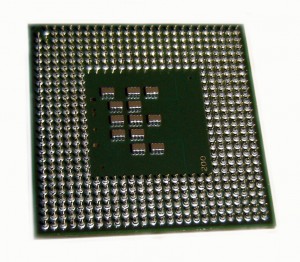Will 2014 Be the Outburst Year for 64-bit Processors?

Apple is never above to participating in hardware war; but it is usually Apple that provokes the hardware arm race. This year iPhone 5S is of no exception.
In September, Apple introduced the iPhone 5S with the biggest highlight of 64-bit A7 processor. Comparing with 32-bit chip, 64-bit processor can fetch or shuffle twice as many bits with each tick of the processor’s clock, thus performing computationally intensive tasks more quickly; and support larger amounts of random-access memory (RAM).
Maybe few benefits consumers can get from 64-bit processor in smartphones, even Qualcomm chief marketing officer Anand Chandrasekher defined it as a “marketing gimmick”; market is showing signs of moving toward 64-bit chip.
“Predominantly… you need it for memory addressability beyond 4GB. That’s it. You don’t really need it for performance, and the kinds of applications that 64-bit get used in mostly are large, server-class applications,” said Chandrasekher.
Driven by Apple’s leading role and great market impact of iPhone, 64-bit processor is shifting the attention of hardware manufacturers in quality of chip cores. It is reported that Samsung, Qualcomm, Nvidia and Broadcom is planning to release mobile processors of their own, in many cases based on the same architecture that Apple has licensed from ARM.
Samsung is aiming for 2014; Samsung’s CEO JK Shin confirmed that the Korean company planned to ship 64-bit SoCs next year. Qualcomm has also announced working on 64-bit chips.
As for ARM, “during 2014 there will be an increase in the number of ARM based 64-bit solutions available not only for mobile devices but also for the networking and server markets,” says ARM’s Chief Marketing Officer and EVP for Business Development.
Will 2014 or CES 2014 see breakout of 64-bit processors?
